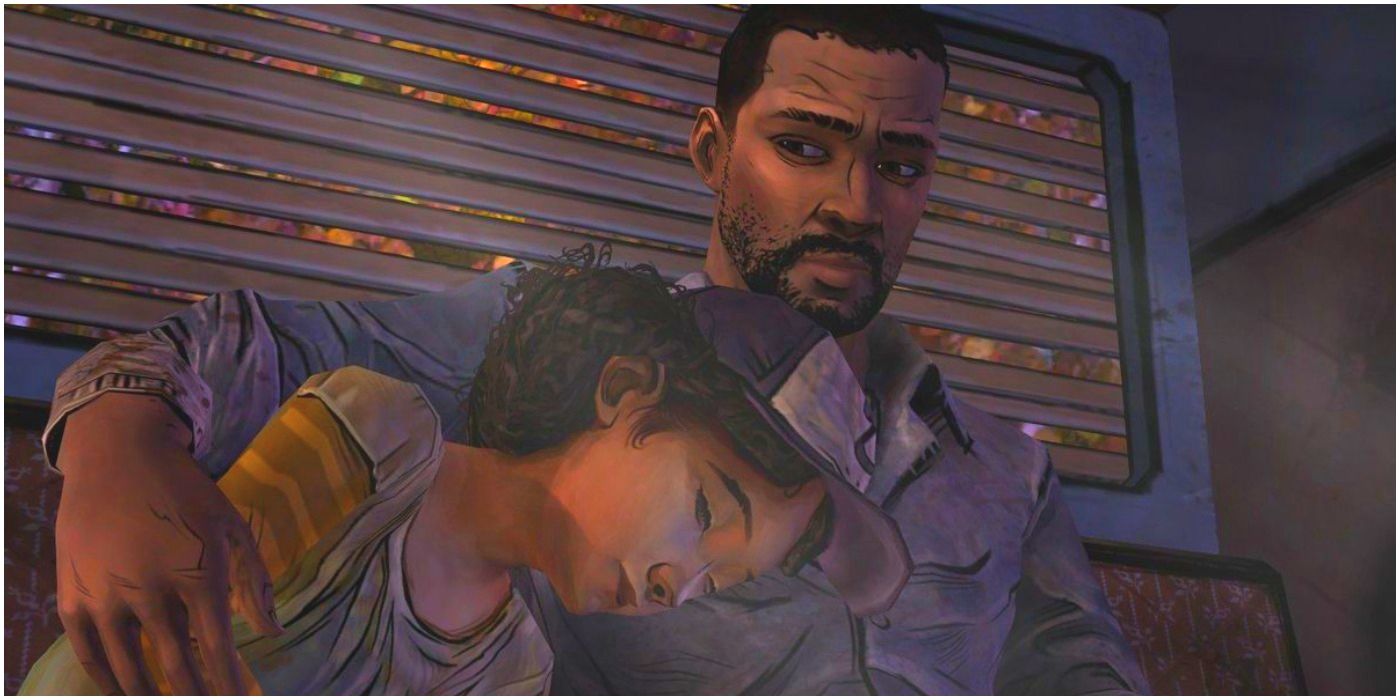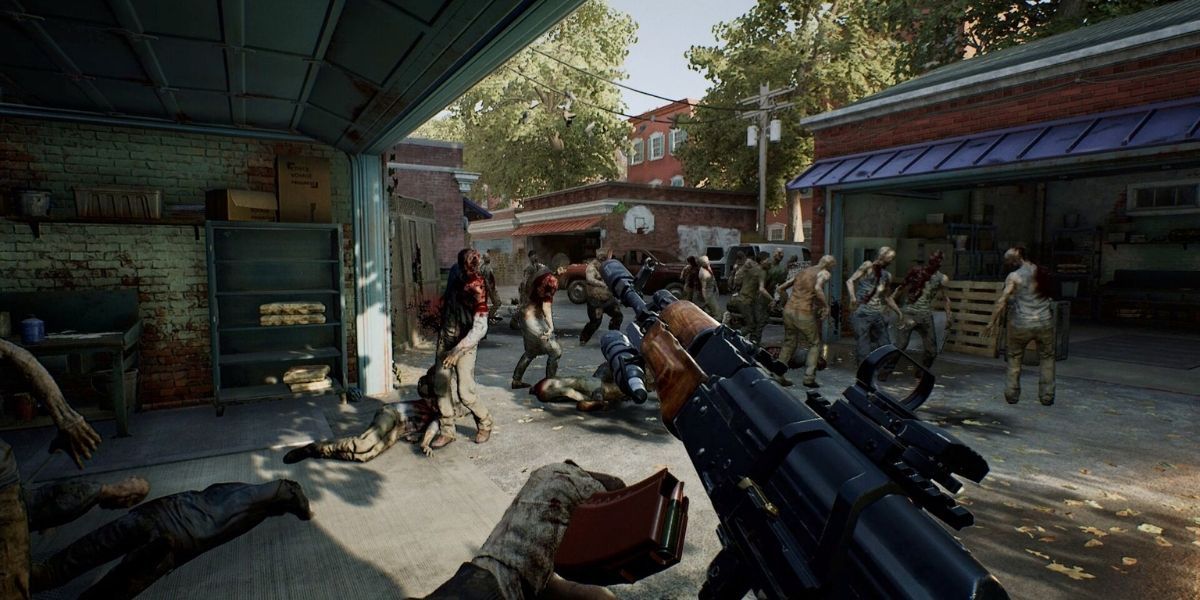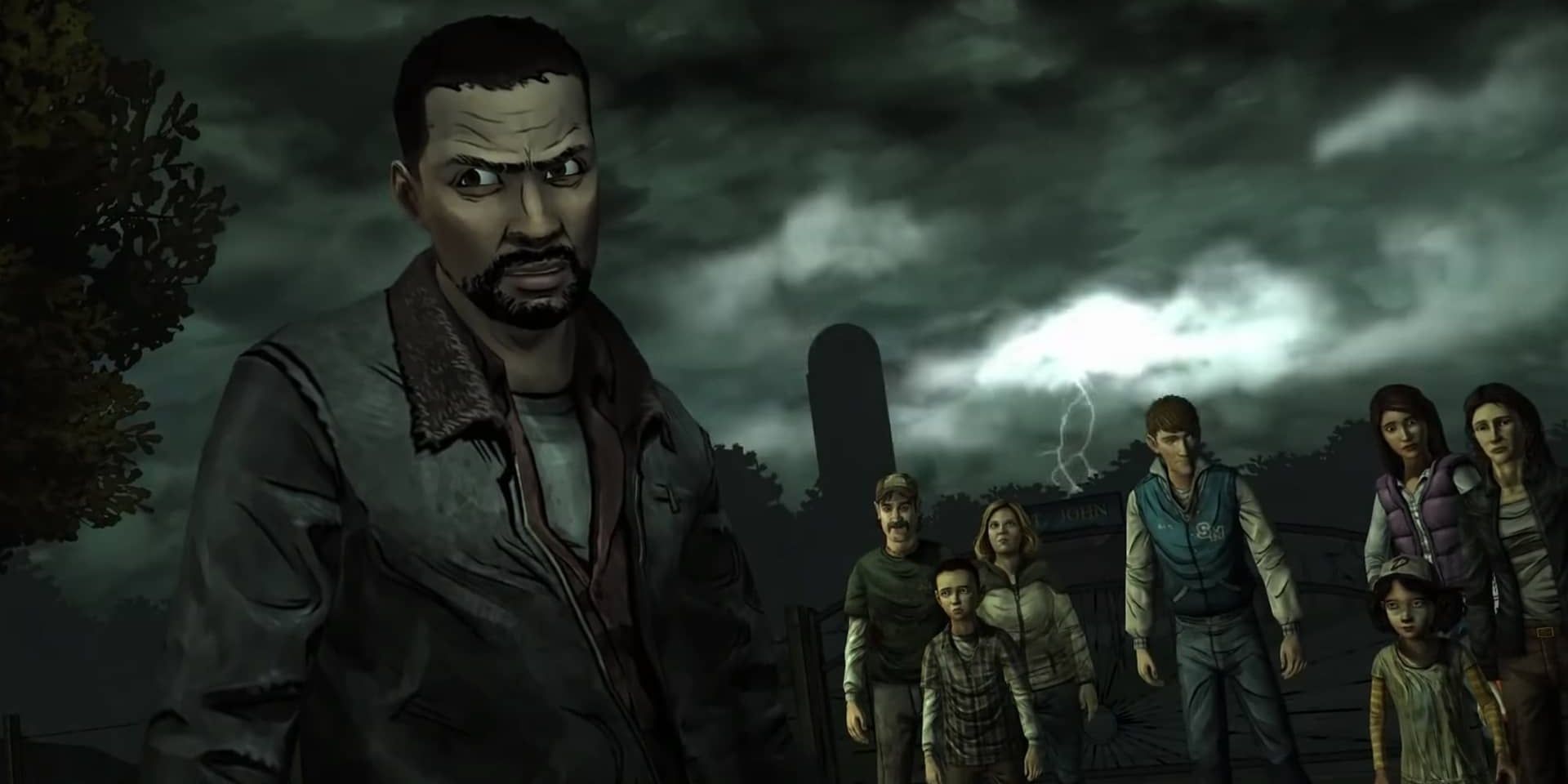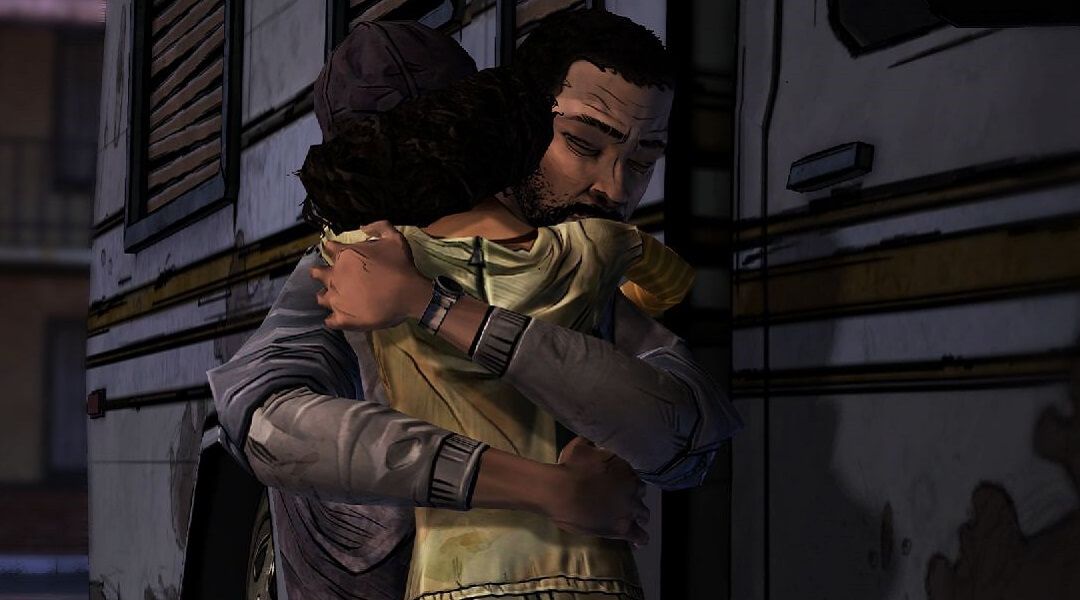The Walking Dead comic book series has been adapted into many different formats, including a wide range of video games. From first-person shooters to top-down strategy games, the franchise has birthed games of almost every kind as players fight for survival during a zombie apocalypse.
None of these adaptations of The Walking Dead have ever been able to capture the magic of the Telltale series. Here's just what the Telltale series understands about the comic book source material and zombie stories, and why that understanding makes the games so special.
Adapting The Walking Dead
There have been plenty of adaptations of The Walking Dead, especially since the Walking Dead AMC show brought the already-popular comic series into mainstream popular culture. Some of the games didn't work for purely mechanical reasons. The Walking Dead: Survival Instinct aimed to tell the story of how Daryl and Merle Dixon made their way to Atlanta, where they are first encountered in the comics and TV show. The two actors behind the characters even reprised their roles. The first-person shooter mechanics, however, were irreparably clunky, and few remember the game as anything more than a misguided spin-off.
Anyone who watched The Walking Dead as it aired on AMC will likely remember the commercials for The Walking Dead: Road to Survival. This was a mobile zombie game where players managed a team trying to survive the zombie apocalypse. This game had some satisfying combat situations and included many fan-favorite characters from the show. However, while it was a decent mobile strategy game, it had next to no story, simply following the events of the show as a backdrop for combat encounters.
Other attempts at video game adaptations included free turn-based RPG The Walking Dead: No Man's Land, and VR game The Walking Dead: Saints and Sinners. Saints and Sinners also attempted to put the player in the first-person perspective of someone battling through the outbreak, this time in New Orleans. All of these video game adaptations, however, missed out on a vital part of what makes The Walking Dead and The Walking Dead Telltale series so special.
Zombie Stories And Social Strain
The Walking Dead isn't about fighting zombies. It isn't about collecting and managing resources, building bases, fighting in satisfyingly gory combat encounters, or enduring with punishing survival mechanics. In The Walking Dead comics, the earlier seasons of the AMC show, and the Telltale games, The Walking Dead is about human relationships, and the cracks exposed in them when people are placed in extreme situations.
In the first season of the show this is exemplified by Rick's relationship with his best friend Shane Walsh, who begins having an affair with Rick's wife Lori that continues after Rick is revealed to be alive. In the Telltale game, this is explored through characters like Kenny, whose underlying racism slowly bubbles to the surface over the course of season one. Both the TV and Telltale adaptations explore the desire to protect and curate a sense of family during crises, to strictly define in-groups and out-groups, and the underlying hostilities of everyday life that are exposed when the comforts of first-world living are suddenly dissolved.
The Walking Dead doesn't need zombies, though they add a great aesthetic and a rich history of zombie movies to draw on. The same stories could be told about people surviving in the wake of a natural disaster, economic collapse, or a war. Any other crisis could serve as a pressure-cooker to expose the preexisting social fault-lines which are less visible during better times.
The Legacy Of Telltale Games
This is one of the reasons that all versions of The Walking Dead feature a diverse cast of characters. The Dixon brothers, for example, have been used to explore prejudice in America, as well as to raise poignant questions about who people are, and have the potential to move beyond the culture they were raised in. The Walking Dead Telltale games have barely any combat at all. Everything is explored through dialogue choices, quick time events, and constant moral dilemmas.
Telltale's season one protagonist Lee Everett is a man on his way to prison after murdering a state senator who slept with his wife. Ironically it's the end of the world that gives him his second chance at life. His story explores kindness, redemption, fear, and self-sacrifice. Some of the characters who are at times hostile to Lee, like Kenny, force players to ask the key question posed by The Walking Dead — if everything was on the line, what would the reader, viewer, or player really do?
Would they turn against their neighbors? Would they risk themselves to help others? The Telltale games explore what happens when those questions are no longer hypothetical, and works to expose how little people's self-perceived sense of morality ends up coming into play when lives are truly on the line.
Even the idea of becoming infected — of which Lee eventually becomes — works in part as a metaphor for giving in to total self-preservation in crisis. There's a reason that many versions of The Walking Dead, including the Telltale series, explore humans who turn to cannibalism despite not being infected with the zombie virus. A Walking Dead game should never focus on the zombies, it should focus on the survivors.
This is something only the Telltale games show a true appreciation of. Lee and Clementine's relationship is the absolute center of the first season, not the end of the world itself. Though some decisions end up leading to the same outcome, The Walking Dead Telltale series attempts to create a world of constant moral dilemmas that could be applied to any real-world crisis.
Telltale Games wrapped up the series long ago. However, by creating a game that truly explored the moral heart of The Walking Dead, it will likely be remembered for far longer than the games that focus on the source material as a backdrop for a fast-paced combat fantasy. Whether or not the series will ever receive the same nuanced treatment in a video game adaptation again remains to be seen.
Telltale's The Walking Dead is available now on Android, iOS, Kindle Fire HDX, Microsoft Windows, Mac OS X, Linux, PlayStation 3, PlayStation Vita, Xbox 360, PlayStation 4, Xbox One, and Nintendo Switch.




